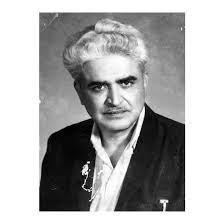
Early Life and Background
- Full Name: Ramchandra Narhar Chitalkar
- Stage Name: C. Ramchandra
- Birth Date: January 12, 1918
- Birth Place: Puntamba, Ahmednagar, British India (now in Maharashtra, India)
- Nationality: Indian
- Occupation: Music Director, Composer, Playback Singer
- Active Years: 1937–1976
C. Ramchandra was born in a Maharashtrian family and showed an early interest in music. He trained in classical music and was also influenced by Western music, particularly jazz and rock & roll. His ability to blend Indian classical music with Western styles made him one of Bollywood’s most innovative composers.
Musical Career
Early Career (1937–1946)
- Started as an actor in Y. V. Rao’s films before moving to music composition.
- Worked as an assistant music director under Master Krishna Rao and Sajjad Hussain.
- First independent music direction: Sukhi Jeevan (1942).
- Early hits: Safar (1946) and Shehnai (1947), featuring songs like Aana Meri Jaan Sunday Ke Sunday.
Golden Era (1947–1960s)
C. Ramchandra became famous for his melodic, romantic, and Western-inspired compositions. His music introduced Latin beats, jazz, and swing to Bollywood, making his songs lively and fresh.
Filmography
| Year | Film Title | Notable Songs / Details |
|---|---|---|
| 1942 | Sukhi Jeevan | Debut in Hindi cinema as a music director |
| 1943 | Badla | Early work showcasing his developing musical style |
| 1944 | Dil Ki Baat, Manorama | Continued exploration of romantic themes |
| 1945 | Samrat Chandragupt | Historical drama with classical compositions |
| 1946 | Bachchon Ka Khel | Family-oriented film with melodious tracks |
| 1947 | Shehnai | “Aana Meri Jaan Sunday Ke Sunday” introduced Western jazz elements |
| 1948 | Khidki, Nazrana | Further established his reputation in the industry |
| 1949 | Patanga, Sargam | “Mere Piya Gaye Rangoon” became immensely popular |
| 1950 | Nirala, Sangram | Showcased versatility in composing for different genres |
| 1951 | Albela | “Shola Jo Bhadke” became a classic; noted for its Western musical influences |
| 1953 | Anarkali | “Yeh Zindagi Usi Ki Hai” remains an evergreen classic |
| 1955 | Azaad | “Na Bole Na Bole” added to his list of hits |
| 1957 | Aasha | “Eena Meena Deeka” introduced scat singing to Bollywood |
| 1959 | Navrang | Known for its innovative musical compositions |
| 1960 | Aanchal | Continued to compose meaningful music |
| 1961 | Stree | Explored mythological themes through music |
| 1967 | Wahan Ke Log | One of his later works in Hindi cinema |
| 1979 | Akbar Salim Anarkali | Revisited historical romance with melodious tracks |
Collaboration with Singers
- Lata Mangeshkar – His most famous collaborator; she sang Yeh Zindagi Usi Ki Hai (Anarkali).
- Talat Mahmood & Mohammed Rafi – Worked on romantic melodies.
- Geeta Dutt & Kishore Kumar – Composed several upbeat and fun songs.
Unique Musical Style
- Western Influence – Used jazz, swing, and Latin beats in Indian film music.
- Lighthearted Melodies – Known for playful and romantic compositions.
- Classical and Folk Fusion – Blended Indian classical with regional folk music.
Later Career and Contributions
- By the late 1960s, changing trends in Bollywood music affected his career.
- Focused on Marathi film music and devotional songs.
- Last major work: Bahuraani (1963).
Awards and Recognitions
Filmfare Award Nomination – Navrang (1959)
Sangeet Natak Akademi Award – Lifetime Contribution to Indian Music
Lata Mangeshkar praised him as one of her greatest mentors.
Personal Life
- Married and had children.
- Was known to be a private and reserved person despite his lively music.
Death and Legacy
- Died: January 5, 1982, in Mumbai.
- Left behind timeless melodies that still captivate music lovers.
- Influenced later composers like R. D. Burman and Bappi Lahiri.
SOCIAL MEDIA LINKS :



